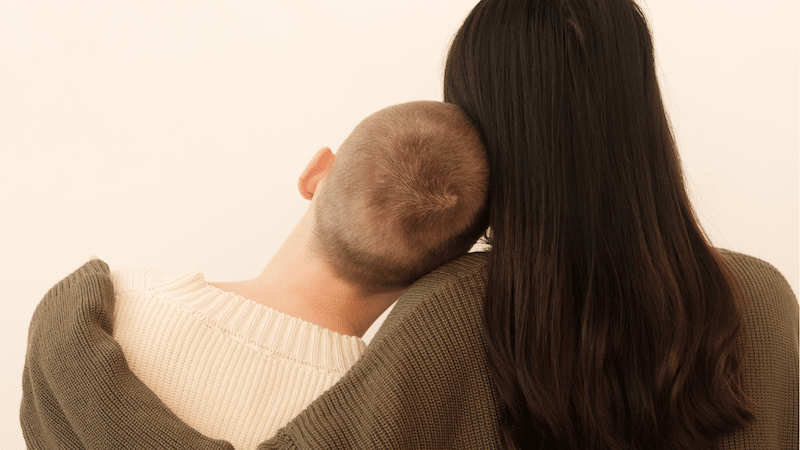Supporters and Loved Ones of Sexual Assault Survivors

Everyone knows a survivor, whether or not they are aware of it. Research demonstrates that at least 54% of women, 44% of men, and 47% of transgender/gender non-conforming individuals have experienced contact sexual violence in their lifetime.1,2 Survivors of sexual assault are more likely to informally disclose to a loved one than file a formal report, with studies suggesting that 54-98% of survivors at some point choose to disclose to someone they know and trust.3 They anticipate that a loved one will give them a more compassionate response than law enforcement would, and overall do not trust the police to handle the report properly. It is likely that, at some point, everyone will be the person someone else chooses to disclose to.
How a loved one responds to a disclosure can have a profound impact on how the survivor heals and their next steps regarding medical, legal, and/or mental health support. Supportive responses promote healing, while responses that survivors find unsupportive can make it harder for them to cope with their experiences.4 This can be a lot of pressure, and most people aren’t prepared to perfectly respond to a disclosure of sexual assault at any given moment. However, this is why it’s important for everyone to learn how to respond to disclosures of sexual assault so that they can be prepared when it happens.
Those who are close to survivors and stand alongside them on their healing journey are essential, but they deserve support too. It can be incredibly difficult to know how to be there for a loved one after they’ve experienced sexual assault.
Self-blame
Sometimes, those who love and support survivors may blame themselves for the sexual assault. Self-blame can be especially common among parents of survivors, who feel an added responsibility to protect their child. Those close to survivors may feel as though they should have prevented what happened or if they had done something different, their loved one wouldn’t have been assaulted. In reality, there is no one to blame for a sexual assault other than the perpetrator.
Those in a survivor’s support system may try to “fix” their emotions or feel the responsibility to take away the survivor’s pain. While coming from a loving place, this isn’t possible, and oftentimes can come across as dismissive. It isn’t a loved one’s responsibility to take away the survivor’s pain. Rather, support systems are there to stand alongside them through those emotions.
Vicarious Trauma
Vicarious trauma is when someone is traumatized by a traumatic event that happened to someone else and not to them directly, such as when a loved one is sexually assaulted. One study found that 25-42% of spouses of veterans with PTSD also developed symptoms suggestive of PTSD.5 Particularly, they may develop symptoms that mimic those that their loved one experiences.6
There are many reasons why supporting someone after a traumatic event can be vicariously traumatic. When a loved one is harmed, people can develop an overwhelming fear that something else bad will happen to them or someone else they care about. It can also be traumatizing to witness their loved one experiencing a mental health crisis, such as intense emotional dysregulation, self-harm, flashbacks, or dissociative episodes. Survivors may lash out, or have misplaced anger directed at the loved one.
Continuously providing support in these moments while also remaining calm can take a toll on the supporter’s mental health. As a result, they may develop vicarious trauma, and possibly even compassion fatigue. Compassion fatigue is a form of traumatic stress developed after the repeated exposure to those with trauma that can lead an otherwise caring individual to become less empathetic. Developing compassion fatigue does not mean they do not care about the survivor or what they experienced, and it doesn’t make them a bad person. Compassion fatigue is a signal that a loved one of a survivor is in need of their own support.
Managing Own Emotions
When a loved one is sexually assaulted, or has experienced any other form of abuse, it is totally valid to feel shocked, angry, and depressed. However, it can be difficult for survivors to see their loved ones struggling due to their assault, especially when the loved one shares how much the sexual assault is impacting them. They may feel as though the pain their loved one is feeling is their fault. This can make it harder for a survivor to lean on a loved one, or they may isolate for the sake of the other person. Neither person is at fault or doing anything wrong, navigating the aftermath of sexual violence is just inherently difficult.
Those who are close to survivors and serve as their immediate support system deserve support themselves, and aren’t bad people if they feel overwhelmed by what their loved one is going through. Loved ones may feel guilty seeking support because they may feel selfish, fear they are being uncompassionate, or may worry that they are sharing information about someone else’s sexual assault without the consent of the survivor. Supporters cannot pour from an empty cup, and their mental health matters. People who are in the immediate support system of a survivor should consider seeking their own therapy or support groups. Having their own support system allows them to share how difficult it can be to be in a survivor’s support system without harming the survivor. It can also help them cope with their difficult emotions so that they are able to show up for the survivor. The mental health of those in a survivor’s support system is just as important as the survivor’s.
Establishing Boundaries
It can be difficult to establish boundaries with someone who is having a hard time healing from a traumatic event. Loved one’s may put the survivor’s needs above their own, or may be subjected to difficult behaviors or emotions. While healing from trauma, people may not be the best versions of themselves, which can cause them to say or do things that can be hard to manage. It’s important during this time to differentiate between abuse and unhealthy behaviors. Having been through trauma is never an excuse to abuse someone. However, even if these behaviors aren’t abusive, they can still take a toll.
Loved one’s should try to communicate boundaries with the survivor with compassion, but assertiveness as well. Setting boundaries doesn’t mean someone doesn’t care about a survivor and it doesn’t mean they will never be able to support the survivor in all of the ways they need. Boundaries benefit everyone. They allow people to show up as best they can and set expectations.
Supporting someone along their healing journey can be difficult, stressful, and emotionally taxing. You aren’t a bad person if you feel overwhelmed by what your loved one is going through or if you need support of your own. As long as you lead with empathy and respect for yourself and your loved one throughout the process, you are doing the best you can.Your efforts towards providing support to someone during their time of need is commendable.
Sources
- National Intimate Partner and Sexual Violence Survey (NISVS): 2016/2017 State Report
- James, S. E., Herman, J. L., Rankin, S., Keisling, M., Mottet, L., & Anafi, M. (2016). The Report of the 2015 U.S. Transgender Survey. Washington, DC: National Center for Transgender Equality.
- Filipas, H.H. & Ullman, S.E. (2001). Social reactions to sexual assault victims from various support sources. Violence and Victims, 16, 673-692; Lindquist, C.H., Barrick, K., Krebs, C., Crosby, C.M., Lockard, A.J. & Sanders-Phillips, K. (2013). The context and consequences of sexual assault among undergraduate women at historically black colleges and universities (HBCUs). Journal of Interpersonal Violence, 28 (12), 2437-2461; Orchowski, L.M. & Gidycz, C.A. (2012). To whom do college women confide following sexual assault? A prospective study of predictors of sexual assault disclosures and social reactions. Violence Against Women, 18 (3), 264-288; Starzynski, L.L., Ullman, S.E., Filipas, H.H. & Townsend, S.M. (2005). Correlates of women’s sexual assault disclosure to informal and formal support sources. Violence and Victims, 20, 415-431; Walsh, W.A., Banyard, V.L., Moynihan, M.M., Ward, S. & Cohn, E.S. (2010). Disclosure and service use on a college campus after an unwanted sexual experience. Journal of Trauma & Dissociation, 11 (2), 134-151.
- Scoglio, A. A. J., Lincoln, A., Kraus, S. W., & Molnar, B. E. (2022). Chipped or Whole? Listening to Survivors’ Experiences With Disclosure Following Sexual Violence. Journal of interpersonal violence, 37(9-10), NP6903–NP6928. https://doi.org/10.1177/0886260520967745
- Calhoun, P. S., Beckham, J. C., & Bosworth, H. B. (2002). Caregiver burden and psychological distress in partners of veterans with chronic posttraumatic stress disorder. Journal of traumatic stress, 15(3), 205–212. https://doi.org/10.1023/A:1015251210928
- Goff, B. S. N., & Smith, D. B. (2005). Systemic Traumatic Stress: The Couple Adaptation to Traumatic Stress Model. Journal of Marital and Family Therapy, 31(2), 145–157. https://doi.org/10.1111/j.1752-0606.2005.tb01552.x



